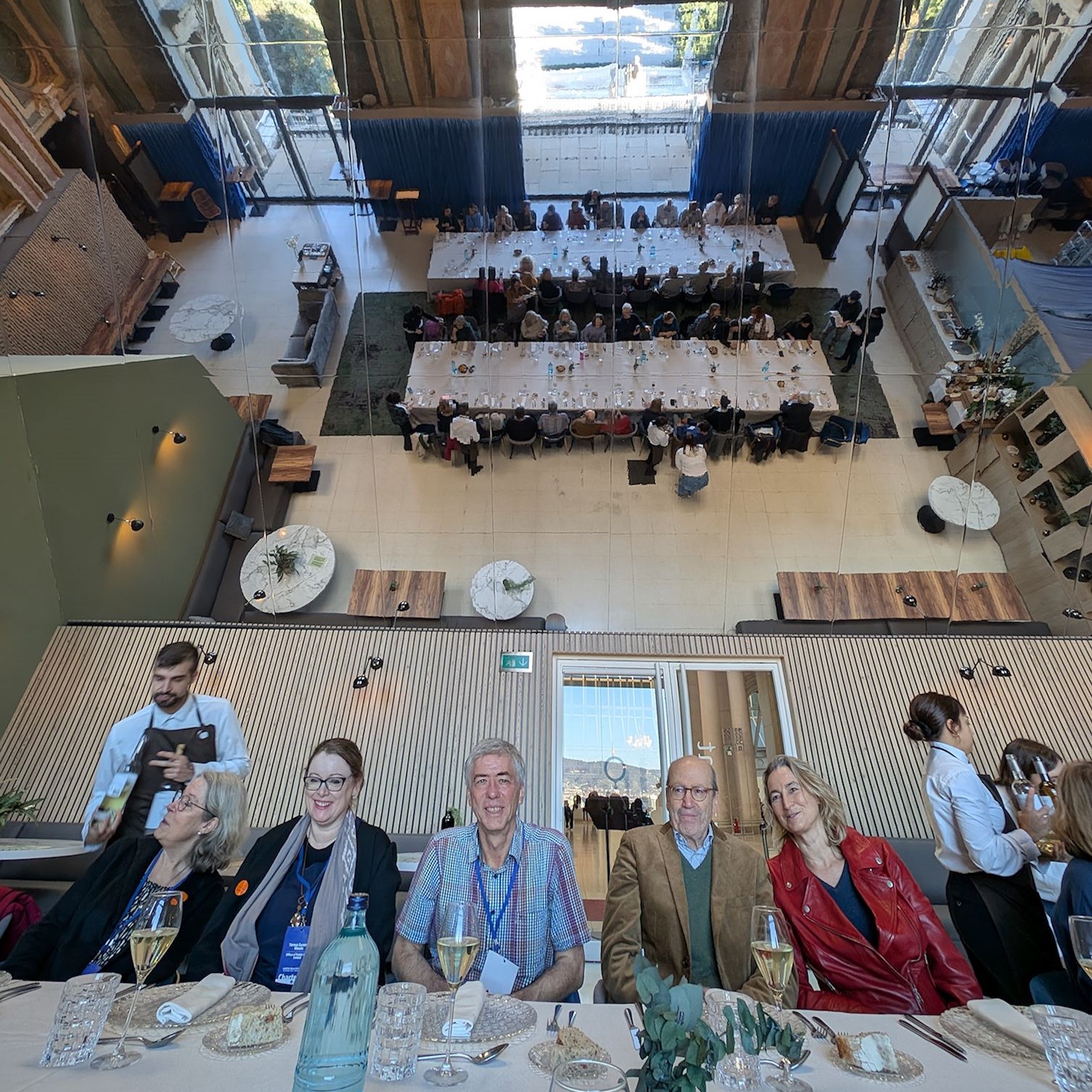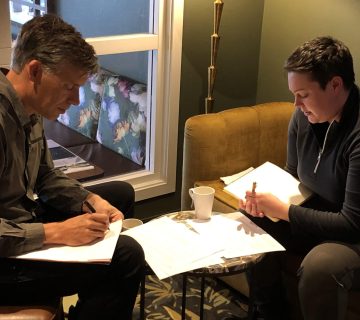Impressions from the CHARTER project, which enriched my understanding of the shifting heritage paradigm.
CHARTER was a 4-year European Blueprint Project for the EU’s cultural heritage sector, which recently came to an end (you can find more details below). I was invited to CHARTER’s external Expert Advisory Board, where I could contribute to discussions and drafts with my understanding of and experience with value-based heritage interpretation.
This was a great opportunity to gain some insights into the professional lives and thinking of others dealing with cultural heritage. One achievement of CHARTER was that people working in various specialised professions realised that we, cultural heritage people, have a lot in common. It became clear that we need to join forces to make cultural heritage visible as a sector which matters for the future of European societies and the EU. Policy makers tend to assess the significance of a sector and its professions based on evidence from statistical data. But neither is the cultural heritage sector in its entirety adequately covered by relevant statistical taxonomies, nor the professional field of heritage interpretation. Hence, education and training policies, as well as project funding programmes, often fail to match the needs of the sector.
At the same time, it was eye-opening to realise that we are not alone with our internal discussions in IE about new value-based, participatory and cocreative approaches in heritage interpretation. Similar discussions occur for instance among conservators and restorers, or researchers in heritage related disciplines. We are all taking part in a large scale paradigm shift regarding the conception and purpose of ‘heritage’ as such. CHARTER’s mid-term report characterised it as “values-based, people-centred heritage”(Corr et al. 2023, 6). Within the old paradigm, ‘heritage’ had intrinsic value which justified its preservation as an end in itself. These values were determined by experts specialised in a heritage-related academic discipline. Consequently, expert-driven top-down approaches dominated not only in conservation and planning, but also various forms of heritage education which used more or less sophisticated didactic approaches to convey expert knowledge, opinions and messages to non-expert audiences (e.g. message-driven heritage interpretation).
The new heritage paradigm is characterised as people-centred because it understands that people with different backgrounds ascribe different meanings and values to things which they consider worthy of being preserved as heritage. It is rooted in democratic values, freedom of opinion and human rights, including the right of participation in culture.
In this view, heritage is of public interest as it serves the common good: the wellbeing of people and the cohesion of plural democratic societies that embrace ‘unity in diversity’ and sustainable development.
For me, as a heritage interpreter, it became obvious that enhanced interpretation skills matter not only for us who are specialised in engaging visitors and locals in order to facilitate meaningful heritage experiences. All others working with heritage – researchers and educators, heritage managers and policy makers, conservation, preservation or restoration specialists – all need to interpret what heritage assets mean for other people and which features and aspects are of particular significance for different heritage communities, for plural societies, and even for international relations.
CHARTER revealed to me that despite our diverse backgrounds we are united by the same spirit, while we might still express it in different words and terminologies. It was great to experience that suggestions or concerns based on recent developments in heritage interpretation were valued by the CHARTER consortium and contributed to several results. This raised my confidence that we are on the right track and that IE as an organisation specialised in interpretation has something to contribute to the entire sector.
At the same time, a lesson learned from CHARTER is, that we still need to further develop advanced interpretation skills and tools
- that enable people to explore the diversity of meanings and values ascribed to heritage,
- that facilitate the integration of multiple perspectives into a bigger picture,
- that help to discern valid and legitimate points of view on controversial issues from false arguments or misrepresentations,
- that foster understanding and appreciation of the EU’s fundamental values which it shares with UNESCO and which underlie universal human rights aiming for the common good.
The CHARTER consortium concluded that heritage related skills do not only matter for professionals. It is equally important to enhance heritage literacy of citizens who live in democratic societies and have to cope with transformations. Heritage literacy involves basic interpretation competences that motivate and enable people to interpret the past from different perspectives in order to reflect about the present and a desirable future.
CHARTER – the first European Blueprint project for a genuinely cultural sector
Funded by Erasmus+, European Blueprint projects are large multi-stakeholder projects to prepare a strategy aimed at meeting the future demands for skills within a significant economic sector. Large consortia involving all important stakeholder groups form a sector skills alliance. They analyse challenges for the sector, mismatched between the sector’s existing education and training offers and skills needed by employers; they investigate new trends which affect the future of the sector and corresponding needs for new skills and emerging professions. All this feeds into a sector skills strategy and policy recommendations to make the sector fit for the future.
The CHARTER consortium comprised 47 institutions which are active in the cultural heritage sector. They represented education and training providers, employers, public bodies and agencies, and associations which represent professionals who work in the sector.
The CHARTER consortium laid the groundwork for better recognition of the cultural heritage sector and its various professional branches. This work shall be continued by a Cultural Heritage Skills Alliance which permanently monitors skills shortages and mismatches, identifies emerging professions, and demonstrates its contribution to social, economic and environmental sustainability in Europe.
Find out more on CHARTER’S website: https://charter-alliance.eu/
Patrick Lehnes is IE’s Cultural Heritage Coordinator, having been an active member of IE since its start and formerly one of IE’s managing directors. Patrick is a freelancer and a researcher at the University of Freiburg, Germany. He can be contacted at: Patrick.lehnes@interpret-europe.net.
To cite this article: Lehnes, Patrick (2024) ‘We need allies and there are allies‘ in Interpret Europe Newsletter 4-2024, pg.6-7.
Available online: https://interpret-europe.net/wp-content/uploads/2025/01/Newsletter-2024_4.pdf




